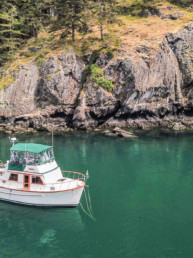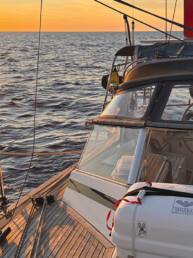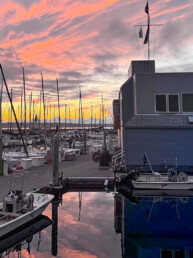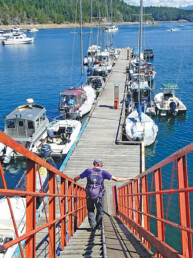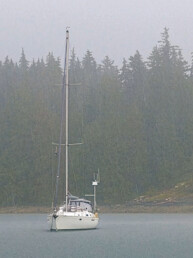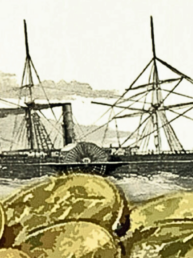As we turn the page into 2025, I’m inspired by hardiness. On the waters of the Salish Sea and the Inside Passage, among Pacific Northwest boat-folk near and far, there is so much to be impressed by, to honor, and from which we may all draw motivation, excitement, and encouragement. It could be efficiency, self-sufficiency, genius, wisdom, strength, success, or dedication to a craft—but for me, for 2025, I find myself admiring grit, persistence, and the capacity for happy discomfort and humble drudgery. That’s what makes me pine for my next chance to be off the dock, to channel that spirit of ruggedness and the rewards that come with it.
Among businesses, educators, and lifers invested in the growth of any aspect of boating, there is an understandable boatload of focus on the ease, comfort, and delight afforded to anyone engaged in a waterborne activity. Versions of this pastime have been the luxurious leisure hobby of the very rich throughout history; it must, thus, provide unmatched enjoyment? Indeed, sometimes it does!
On the other hand, the sea has been the platform and partner that’s created or facilitated some of the wildest, harshest, most inhospitable toil humans have ever experienced. Yikes! But how much of that was really all bad?
Especially here in the Pacific Northwest, and especially among those who set off for adventures afloat in every season—a year on the water will deliver its share of each end of this contradictory spectrum. Bliss and struggle, smooth seas and square waves, relaxation and exhaustion, warm breeze and sideways rain, function and failure, pleasure boating and sheer unpleasantness.
Attempts to avoid these nautical travails can look like prudent seamanship, yet such efforts are often fruitless in an environment that inevitably leaves us feeling vanishingly small and devoid of control. A person could achieve a high-percentage of predictably agreeable conditions in which to take to the water, and that person would have an extremely limited number of days on their boat. And I think that’s my point. Some of the mariners I look up to most these days are not only capable of going out in conditions ranging from snotty to downright scary; but they accept the likelihood of some uncomfortable trials willingly, competently, gladly. Tell me this isn’t legitimately remarkable? There are people I respect who won’t walk their dog if it’s raining.
Just like any other endeavor that is punctuated by intermittent adversity and suffering, I’m certainly not suggesting that everyone enduring heavy times underway is having stupendous fun. They’re not, but they’re also undeterred. Their struggles are met in stride, valuing their own endurance. The matter-of-fact acceptance of challenge and discomfort—as an alternative to bequeathing some storm the determination of your day’s experience, let alone the unpalatable choice between limitation or fantasy if your goal was exclusively easy comfort—is beautiful, noble, desirable, and uplifting.
Let me assure you: you don’t need to regularly sail, cruise, or adventure this way to appreciate it. In fact, I don’t count myself among such gritty boaters, and I certainly don’t intend to throw shade at fair weather sailors. Still, I connect with this sturdy resolve all around me, I’m fueled by this embodied ruggedness, I feel some bizarre envy of someone in already-damp foulies settling down on the rail for an hours-long bash to windward in 25 frigid knots and breeze-against-tide chop. It’s supposed to be fun, but it can be so much more—that’s my wish for the year ahead. What’s empowering you?
Feature photo by Jan Anderson.
Joe Cline
Joe Cline has been the Managing Editor of 48° North since 2014. From his career to his volunteer leadership in the marine industry, from racing sailboats large and small to his discovery of Pacific Northwest cruising —Joe is as sail-smitten as they come. Joe and his wife, Kaylin, have welcomed a couple of beautiful kiddos in the last few years, and he is enjoying fatherhood while still finding time to make a little music and even occasionally go sailing.

